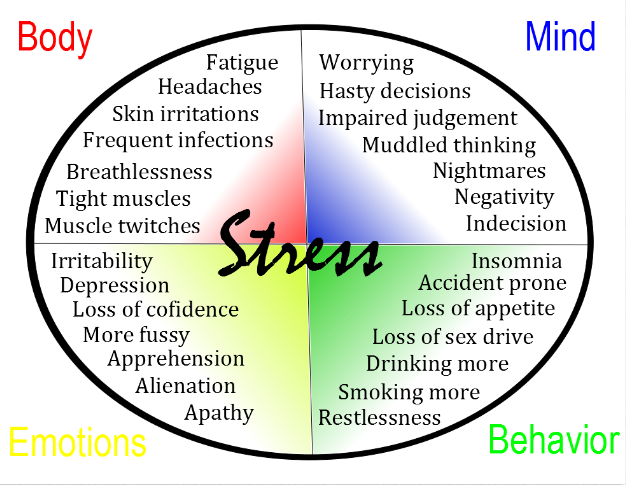Allostatic Overload: The Hidden Health Cost of Chronic Stress
- Jason Fairweather

- Sep 2, 2023
- 3 min read

In today's fast-paced world, stress is considered an inevitable part of life. We're all familiar with signs of stress: rapid heart rate, increased respiration, perspiration, headache, stomachache, anxiety, depression...a general feeling of being on edge. There are, however, long-term implications of chronic stress that are often overlooked, primarily its role in a phenomenon known as "allostatic overload."
What is Allostatic Overload?
Allostasis is the adaptive process by which the body maintains stability, or homeostasis, through change. Think of it as the body's attempt to keep things balanced when faced with external challenges. This homeostasis is orchestrated by a complex system of neuroendocrine responses involving various hormones like cortisol and adrenaline. While allostasis is vital for survival, problems arise when the body is subjected to chronic stress, leading to allostatic load, which is the cumulative wear and tear of chronic stress on the body and brain. Allostatic overload is the tipping point—when this adaptive mechanism becomes overwhelmed, thereby increasing the risk for disease.
The Physiology of Allostatic Overload
When exposed to stressors, the body initiates a 'fight-or-flight' response. Hormones are released, blood pressure increases, and energy reserves are mobilized. Once the stressor has passed, allostatic systems work to bring the body back to its baseline.
However, when stressors are relentless, this adaptive system doesn't get the chance to reset, leading to a state of chronic hyperarousal. The persistent elevation of stress hormones, like cortisol, can cause numerous physiological changes:
Inflammation: Chronic stress has been linked to low-grade inflammation, which in turn is associated with various chronic diseases.
Immune Suppression: Long-term stress can weaken the immune system, making one susceptible to infections.
Cardiovascular Issues: Constant activation of the stress response can contribute to high blood pressure and cardiovascular diseases.
Metabolic Changes: Allostatic overload can lead to metabolic syndromes like diabetes and obesity.
The Impact on Mental Health
We've talked a bit about the physical change of allostatic overload, but allostatic overload doesn't just wreak havoc on the body; it takes a toll on mental health as well:
Anxiety and Depression: Chronic stress and elevated cortisol can alter brain structures and functions, leading to mood disorders.
Cognitive Impairment: Long-term stress has been linked to problems with memory, concentration, and problem-solving abilities.
Emotional Exhaustion: The constant barrage of stressors can lead to emotional fatigue, reducing the ability to cope with new challenges effectively.
Reduced Resilience: Over time, allostatic overload can weaken an individual's stress response system, making it difficult to bounce back from future stressors.
Breaking the Cycle
Understanding allostatic overload is crucial for developing strategies to combat it. Here are some interventions to consider:
Mindfulness and Meditation: These practices have been shown to reduce cortisol levels, thereby assisting in the restoration of allostasis.
Physical Exercise: Exercise is known to reduce stress hormone levels, improve mood, and boost overall physical health.
Nutritional Support: A balanced diet rich in anti-inflammatory foods can counteract some of the effects of allostatic overload.
Psychological Counseling: Psychotherapy can be useful in addressing the root causes of chronic stress, as can more specialized therapies, such as Brainspotting and EMDR.
Pharmacological Interventions: Medications like anti-depressants can help manage symptoms, but they should be seen as part of a broader treatment plan, not a stand-alone solution.
Final Thoughts
Allostatic overload is a complex issue with far-reaching implications for both physical and mental health. It serves as a reminder that stress isn't merely a psychological inconvenience but a physiological condition that requires robust treatment approaches. By identifying the signs early and implementing multi-pronged interventions, it's possible to minimize the damaging impacts of chronic stress, thereby promoting long-term health and well-being.










Comments